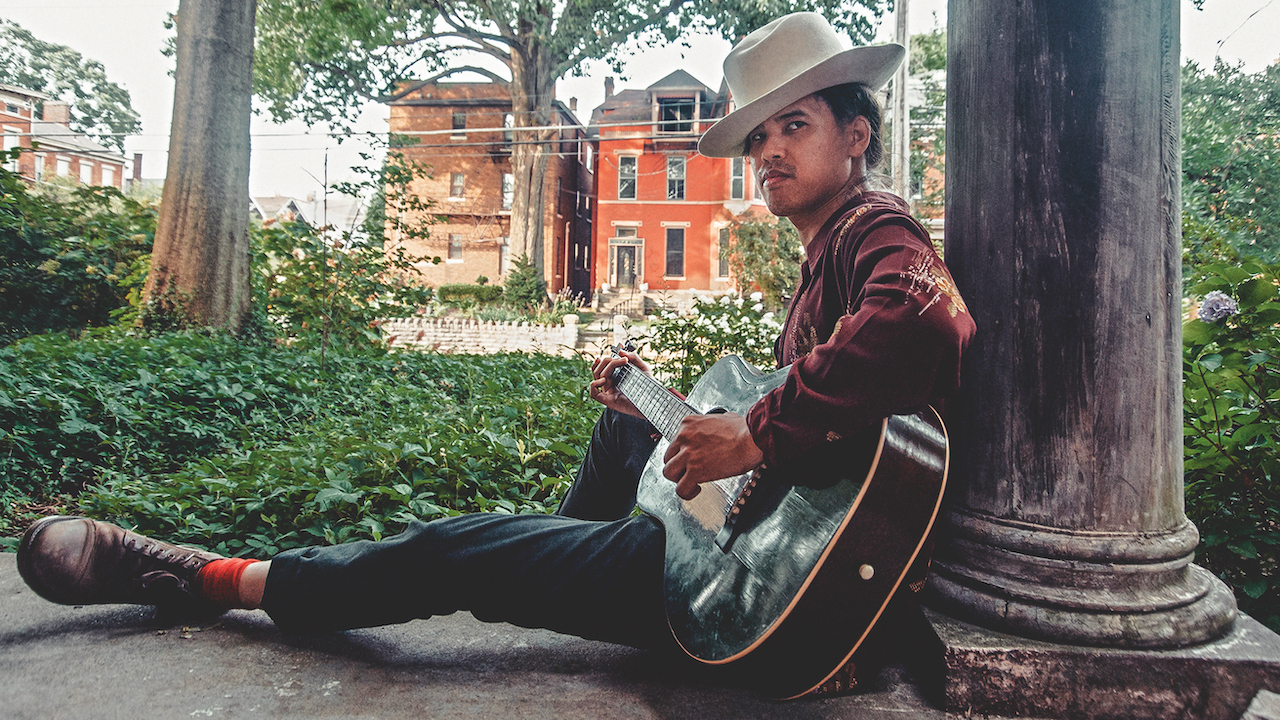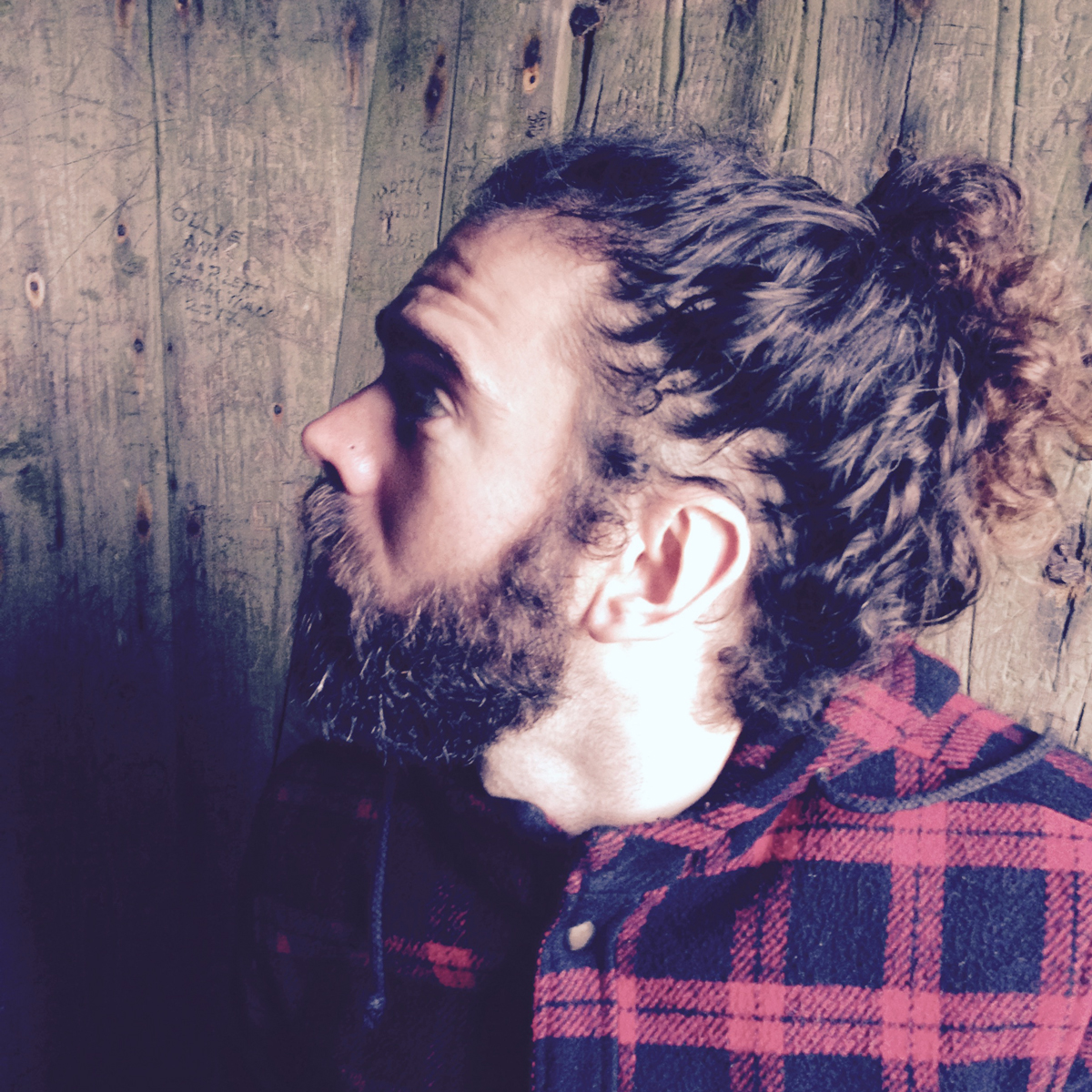“Some of my first gigs were before I had a driving licence, so I had to walk a mile or two to get to shows”: With the help of Dan Auerbach, Nat Myers is making rootsy blues guitar relevant again – and keeping the one-man ramblin’ band tradition alive
Nat Myers’ debut album, Yellow Peril, was produced by the Black Keys frontman – and it’s a modern-day classic of its genre

Nat Myers is a Korean-American Kansan who is making waves as a badass bluesman.
With his snappy Dan Auerbach-produced debut album, Yellow Peril out in the wild, Nat has plenty of hours logged on the road, and when we meet he’s keeping Willie Watson company.
“Willie was one of the first fellas to take me on the road,” Nat begins, with his distinctive drawl. “We’re like two peas in a pod and I can’t get him to shut up right now. I love listening to him talk and he knows it.”
Solo performance
Although there are accompaniments heard on Yellow Peril, Nat’s preferred touring setup is him solo, a decision that suits his old-school sounding blues.
“Yeah, I’m just by my lonesome, sir,” he smiles. “People ask if I’m going to get a band and I’m like, ‘I got into playing this music because I don’t want no band!’ I know some shitkickers back home who I like running around with, but the goose ain’t worth the gander for anyone but myself right now. Maybe down the line…”
“Actually, one of my favourite things about blues guitar is the accompaniment,” he continues. “Not the person leading the solo but the one who knows the perfect bassline and keeps it simple. I’m an accompanist kind of man.”
The Mule’s presence
We jump into guitar chat, with Nat having switched from his Mule resonator to acoustic for these live dates. “The Mule just strikes people in a different way,” he tells us. “Even though they’re pretty common in the blues and folk communities, not a lot of people know what the fuck that thing is.
Get The Pick Newsletter
All the latest guitar news, interviews, lessons, reviews, deals and more, direct to your inbox!
People ask if I’m going to get a band… but the goose ain’t worth the gander for anyone but myself right now
“So you pull it out and it catches attention, but it also twangs a little deeper and has this drag. It’s like what Lonnie Johnson said when someone asked him why he stopped playing acoustic: it’s because no-one fucking listens to you! But I’ve been playing smaller rooms with Willie and they’re much more oriented towards listening, so I can get the acoustic out again.”
The ramblin’ man
Nat has an innate desire to be free and outside, so a gigging blues musician is a good fit for him.
“Some of my first gigs were before I had a [driving] licence,” he says, “so I had to walk a mile or two to get to shows. I’m a ramblin’ man and I’ve been walking my whole life, but this is the first time I’ve been able to professionally ramble. I’m now able to make a cut from being out and about.
“My dad’s and mom’s stories have unintentional odysseys: my mum is from Pusan [South Korea] and came to the States with $25 in quarters; my dad enlisted in ’69 and went to Korea, where he met my mom.
“My entire childhood was spent in fold-out campers and we would travel all across the contiguous United States. I’ve seen all four corners of the country, but it often seems like a dream to me.”
Recording with Dan Auerbach
What also seemed like a dream was catching Dan Auerbach’s eye and having him offer to cut Yellow Peril.
“What’s really cool about Dan is he never waves the fact that he’s Dan Auerbach around,” Nat says.
“You just sit and talk about music and play music; it’s pretty blissful over at Easy Eye Sound [in Nashville]. We could have recorded at the studio, because it’s a great room, but moving it over to Dan’s 200-year-old house gave it this resonance that we were able to capture in this beautiful way.
“And we kept it raw. Maybe we could’ve cleaned up the audio, but it would have been less than what it is. Truth be told, it was a really great time.”
Music as medicine: Exploring big issues with the pioneers of blues
The album’s title track hones in on racial unrest and political tensions experienced in the United States.
“I was getting into some Charley Patton when I wrote it,” he explains. “I always appreciated his ability to describe something like the boll weevil [infestation of the late 1800s and early 1900s] and cotton blight in this humorous way.
“The thing about Boll Weevil Blues, from Ma Rainey to Woody Guthrie [versions], is that they’re funny stories. They were performed to people who might have lost everything, but it allowed them to laugh at it.”
- Yellow Peril is out now on Easy Eye Sound.
Glenn Kimpton is a freelance writer based in the west of England. His interest in English folk music came through players like Chris Wood and Martin Carthy, who also steered him towards alternate guitar tunings. From there, the solo acoustic instrumental genre, sometimes called American Primitive, became more important, with guitarists like Jack Rose, Glenn Jones and Robbie Basho eventually giving way to more contemporary players like William Tyler and Nick Jonah Davis. Most recently, Glenn has focused on a more improvised and experimental side to solo acoustic playing, both through his writing and his own music, with players like Bill Orcutt and Tashi Dorji being particularly significant.
“I suppose I felt that I deserved it for the amount of seriousness that I’d put into it. My head was huge!” “Clapton is God” graffiti made him a guitar legend when he was barely 20 – he says he was far from uncomfortable with the adulation at the time
“I was in a frenzy about it being trapped and burnt up. I knew I'd never be able to replace it”: After being pulled from the wreckage of a car crash, John Sykes ran back to his burning vehicle to save his beloved '76 Les Paul













